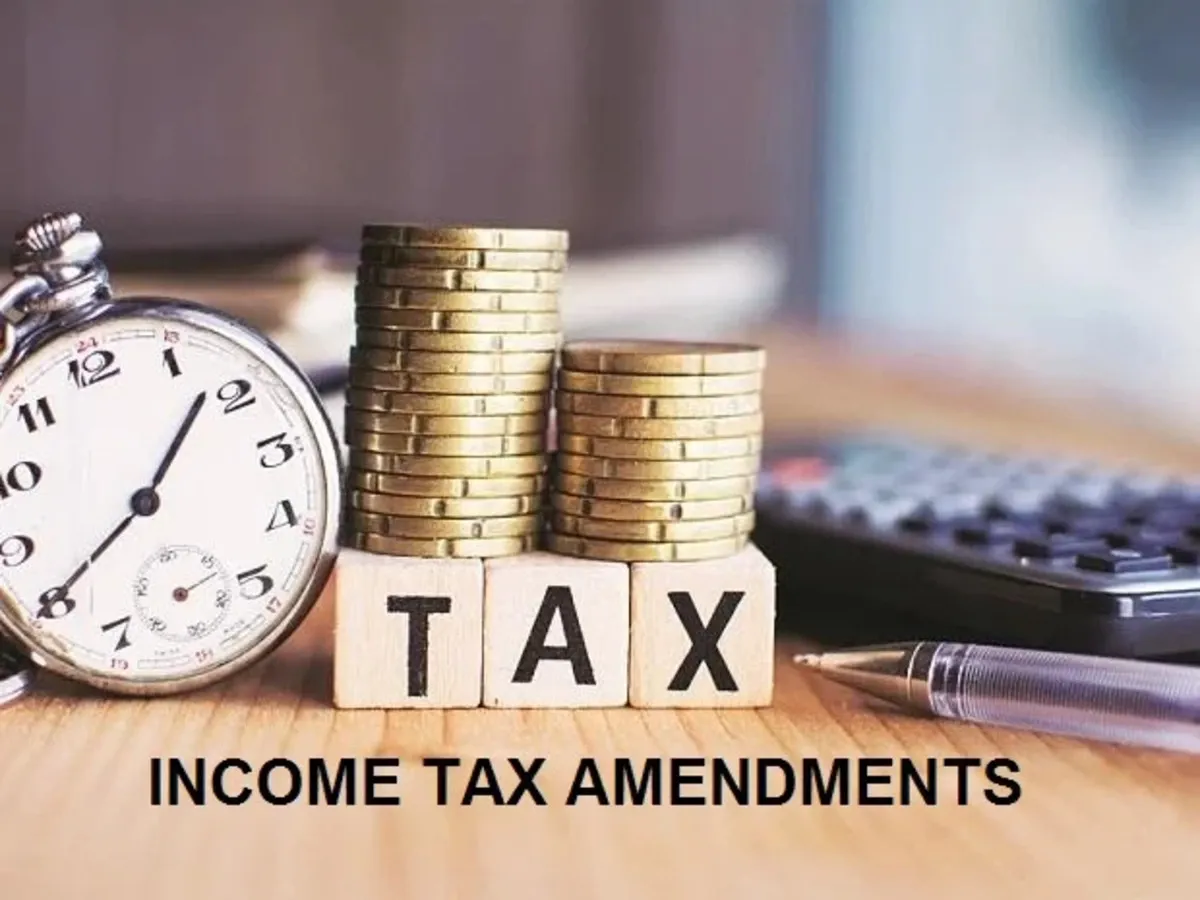Business News
Budget’s tax amendments that will impact investors and traders
.png)
4 min read | Updated on July 23, 2024, 19:44 IST
SUMMARY
With long-term and short-term capital gains tax increased by 25% and 50%, respectively, a 100% hike in Securities Transaction Tax (STT), tax on share buy-backs now in the hands of recipients, and the abolishment of Angel Tax, let’s explore the tax implications for investors and traders post-budget.

Union Budget 2024: Budget’s tax amendments that will impact Investors and Traders
Finance Minister Nirmala Sitharaman tabled the Union Budget 2024 on Tuesday, July 23, for the seventh time. The budget document contained Part B, read along with Finance Bill 2024, which highlighted the government's tax proposals. The amendments in direct taxation drew investors' attention due to significant tax reforms, such as a substantial hike in capital gains tax on listed equities, a 100% increase in the Securities Transaction Tax (STT) on Futures and Options (F&O), and a tax on the buyback of shares. However, the Finance Bill 2024 did provide relief to startup investors by abolishing the Angel Tax and simplifying TDS on repurchasing units of mutual funds.
Five major tax amendments in Finance Bill 2024 Impacting Equity Markets
1. Long Term and Short Term capital gains tax
Long-term gains on all financial and non-financial assets will attract a tax rate of 12.5%. The exemption limit for capital gains on certain financial assets, such as listed equity shares and equity-oriented mutual fund units under section 112A, will increase to ₹1.25 lakh per year.
Short-term gains on certain financial assets, including listed equity shares and equity-oriented mutual fund units, will attract a tax rate of 20%. All other financial assets and non-financial assets will continue to attract the applicable tax rate. Previously, listed equity shares and equity-oriented units attracted a 10% long-term capital gains tax, now increased to 12.5% (a 25% hike). The exemption limit for long-term capital gains on these assets has been increased from ₹1 lakh to ₹1.25 lakh (an increase of ₹25,000).
The short-term capital gains tax on listed equity shares and equity-oriented units has been hiked from 15% to 20% (a 33% increase).
Note: The above amendments are applicable from July 23, 2024.
2. Securities Transaction Tax (STT) on Futures & Options (F&O)
To deepen the tax base, the FM proposed to hike the STT on futures and options of securities to 0.02% and 0.1%, respectively.
Before the amendment, the STT on the sale of an option in securities was 0.0625% of the option premium, and on the sale of a futures contract in securities, it was 0.0125% of the traded price, indicating a 100% hike in the proposed STT.
Note: The above amendments will take effect from October 1, 2024.
3. Withdraw of 20% TDS on repurchase units
To simplify the TDS structure, the 20% TDS rate on the repurchase of units by mutual funds or UTI is withdrawn. Earlier, section 194F provided that the person responsible for paying any amount referred to in subsection (2) of section 80CCB shall, at the time of payment, deduct income tax at the rate of 20%. Through Finance Bill 2024, section 194F is omitted, meaning TDS under 194F will not be applicable.
Note - Above amendments will take effect from October 1, 2024.
4. Abolishment of angel tax
To bolster the Indian startup ecosystem, boost the entrepreneurial spirit, and support innovation, the angel tax for all classes of investors will be abolished, as announced by the FM in the budget speech.
Angel tax is levied on capital raised via the issue of shares by unlisted companies from an Indian investor if the share price of issued shares exceeds the company's fair market value. The excess realization is considered income and taxed accordingly. However, it was abolished through the Finance Bill 2024.
5. Buy back of equity shares
To increase the tax base, the FM added a provision in the income tax to tax income received on the buyback of shares in the hands of the recipient.
Currently, section 115QA provides an exemption for any income arising to an assessee, being a shareholder, from the buyback of shares by the company. The exemption stands withdrawn through Finance Bill 2024 by introducing a tax on income from the buyback of shares in the hands of the shareholder.
Note - The above amendments will take effect from October 1, 2024.
Conclusion
The Finance Bill 2024 amendments reflect the government's efforts to balance revenue generation with support for the startup ecosystem and financial market efficiency. The government, through the STT hike, aims to discourage speculative trading to protect retail investors while increasing the tax base. The broader tax reforms indicate the government’s objective to benefit retail investors by increasing long-term gains exemptions.
By signing up you agree to Upstox’s Terms & Conditions
About The Author
Next Story

